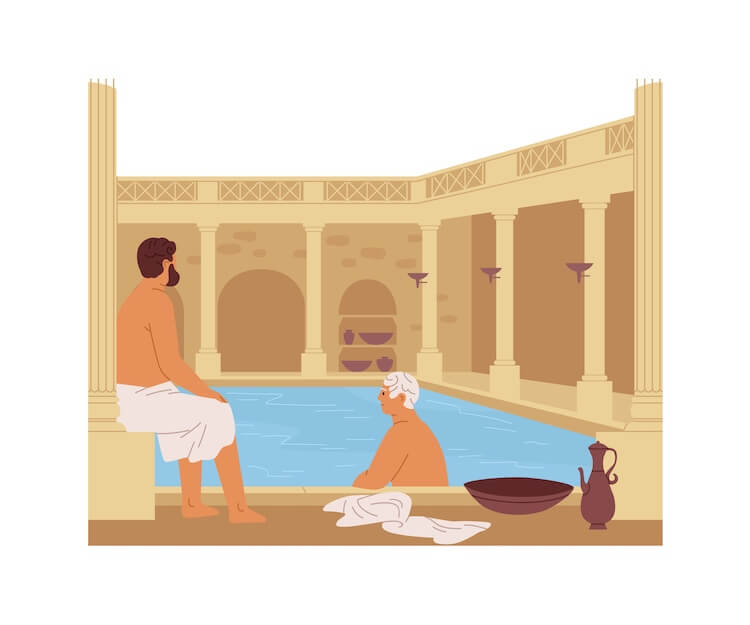Marcus Aurelius was a Roman Emperor and Stoic philosopher who believed in living a life of virtue and simplicity. He developed a morning routine that allowed him to focus on his goals and remain productive throughout the day.
His morning routine is still relevant today, as it can help us become more organized, focused, and productive. In this article, we will discuss Marcus Aurelius’ morning routine and how it can be applied to modern life.
Table of Contents
ToggleMarcus Aurelius Morning Routine
“We are what we repeatedly do.” -Marcus Aurelius
Known as the Last Good Emperor of Rome, Marcus Aurelius reigned over the Roman Empire from 161-180 AD.
As one of the most powerful people in the world during that time and one of the original Stoic philosophers, Aurelius developed a series of daily routines for a good life.
Through his writings, we can analyze what he did every day to prepare himself for challenging tasks and circumstances and learn many valuable productivity and time management hacks that he used.
Here’s what we know.

Waking Up
We know that Marcus Aurelius woke up at dawn. He preferred to rise early so he could get right to work and have time for everything he needed to do.
He believed strongly in duty and doing the work you were meant for. Waking up at the same time early in the day was one way he approached each day with purpose.
The Takeaway
Waking up early is standard practice in much of nature – why not for us as well? Wake up first thing in the morning and get to work.
Journaling
It’s suspected that the first thing Marcus Aurelius would do after waking up was to write in his journal.
He wrote on a daily basis to clear his mind at the start of every day. This is where many of the entries for the “Meditations” book come from.
In his morning journaling, many entries are devoted to the struggle to wake up. He writes down many arguments with himself where he usually concludes: “Is this what you were made for?” before making himself get up and begin working.
The Takeaway
Start your day with a clear mind. Writing down your thoughts in the morning helps empty your mind and prepare you to begin a new day without any baggage from the past or future.
Recitations
Many sayings are attributed to Marcus Aurelius, but there are some we know he wrote and believed.
These come from a book of his personal writings, which were later published as “Meditations”. In his meditations, Aurelius had some advice about what to recite in the morning before you start your day.
Here are some of the recitations he recommended for the morning:
- “The people I deal with today will be meddling, ungrateful, arrogant, dishonest, jealous and surly. They are like this because they cannot tell good from evil. But I have seen the beauty of good, and the ugliness of evil, and have recognized that the wrongdoer has a nature related to my own – not of the same blood or birth, but the same mind, and possessing a share of the divine. And so none of them can hurt me. No one can implicate me in ugliness. Nor can I feel angry at my relative, or hate him. We were born to work together like feet, hands, and eyes, like the two rows of teeth, upper and lower. To obstruct each other is unnatural. To feel anger at someone, to turn your back on him: these are obstructions.”
- “When you arise in the morning think of what a privilege it is to be alive, to think, to enjoy, to love.”
- “I have to go to work — as a human being. What do I have to complain about, if I’m going to do what I was born for — the things I was brought into the world to do? Or is this what I was created for? To huddle under the blankets and stay warm? Don’t you see the plants, the birds, the ants and spiders and bees going about their individual tasks, putting the world in order, as best they can? And you’re not willing to do your job as a human being? Why aren’t you running to do what your nature demands?”
These are all part of his morning journaling entries. He wrote in his journal to himself, rather than writing for others.
The Takeaway
Speaking to yourself, whether it’s a gentle reminder or a lesson in humility, can put you in the correct mindset to face your day. Recitation is a useful habit to build into your morning routine, especially if you regularly struggle with any particular negative self-talk.
Bathing

As a ruler in Rome, it’s suspected that Marcus Aurelius would have frequented the many bathhouses across the Roman empire.
There are many references in his journals to washing away the dirt of life, both metaphorically and physically.
Bathing provides 2 main benefits:
1. Physical cleanliness
Bathing in the morning is refreshing and stimulating. It helps to wake up your body and make you feel invigorated. Aurelius would likely have used both the hot springs and cold pools for bathing, either back to back or on different days.
2. Mental cleanliness
There’s a connection between the physical act of bathing and clearing your mind. When you’re bathing, you’re also getting a moment of quietness at the beginning of your day. Your mind will have space to wander and relax, giving you a chance to process unconscious thoughts and refocus yourself.
While we’re unsure if he would have bathed in the morning or another time throughout the day, it’s likely he did this in the morning hours.
The Takeaway
Adding a shower, bath, sauna visit, or swim into your morning routine can be physically and mentally beneficial. Be prepared by washing off the real and metaphorical dirt from the day before.
Physical Activity
Another assumption we can make about Aurelius is that he regularly exercised by either hunting or training, or both. He also enjoyed sports like boxing and wrestling.
This physical activity would likely have been done in the morning as well, although it’s not certain when he would have engaged in these activities during the day.
The Takeaway
Exercise routines are a great way to build discipline. Doing exercise as part of your morning routine keeps your body strong, wakes you up, and gives you more energy throughout the day.
In fact, lack of physical activity may be what’s making you procrastinate so much! According to some procrastination stats, procrastination is linked to our mood, which can in turn be regulated with daily physical activity.
The benefits of exercising daily can be seen as compounding every day as long as you’re consistent.
Breakfast
From his writings, we can see that Marcus Aurelius did not focus on indulging in food. His philosophy was to eat to live, rather than living to eat.
This means that his food choices were centered around health instead of enjoyment. Food was fuel to him, so he preferred to fuel his body with good nutrition.
We also know that he ate quickly. Meals were not long, drawn-out occasions.
Although it’s unknown what exactly he would have had in the mornings, we know it would have been a routine meal, likely the same thing every day. His breakfast would have been healthy and easy to eat.
The Takeaway
It’s okay to enjoy food, but focus on eating things that will nourish your body. Before all else, food is fuel.
If you start to treat it that way, you can get a healthier perspective on eating and you can plan for better meals that will be good for your body over the long term.
Getting Right to Work
Aurelius was a big advocate for getting straight to work. He didn’t shy away from hard work. In fact, he regularly started to work on his most difficult tasks.
The logic was that he was fresher in the morning. With the fresh morning energy, he believed he could give each difficult task the attention it required. When he was more tired later in the day, he could get smaller tasks done.
The Takeaway
Don’t be scared to start your day with hard work. While your body and mind are fresh, tackle the hardest jobs that require the most effort and focus.
No need to delay. Get right to work and take care of the most difficult things immediately.
This is sometimes also called “eating the frog”.
Conclusion
The life and habits of Marcus Aurelius are inspiring. From his insights and wisdom, you can build a better morning routine for yourself.
By starting your day early, emptying your mind, and getting straight to work on the tough jobs, you can become more disciplined and productive every day.


